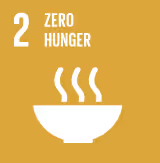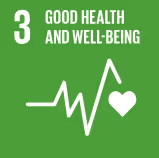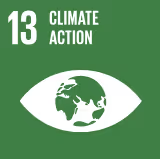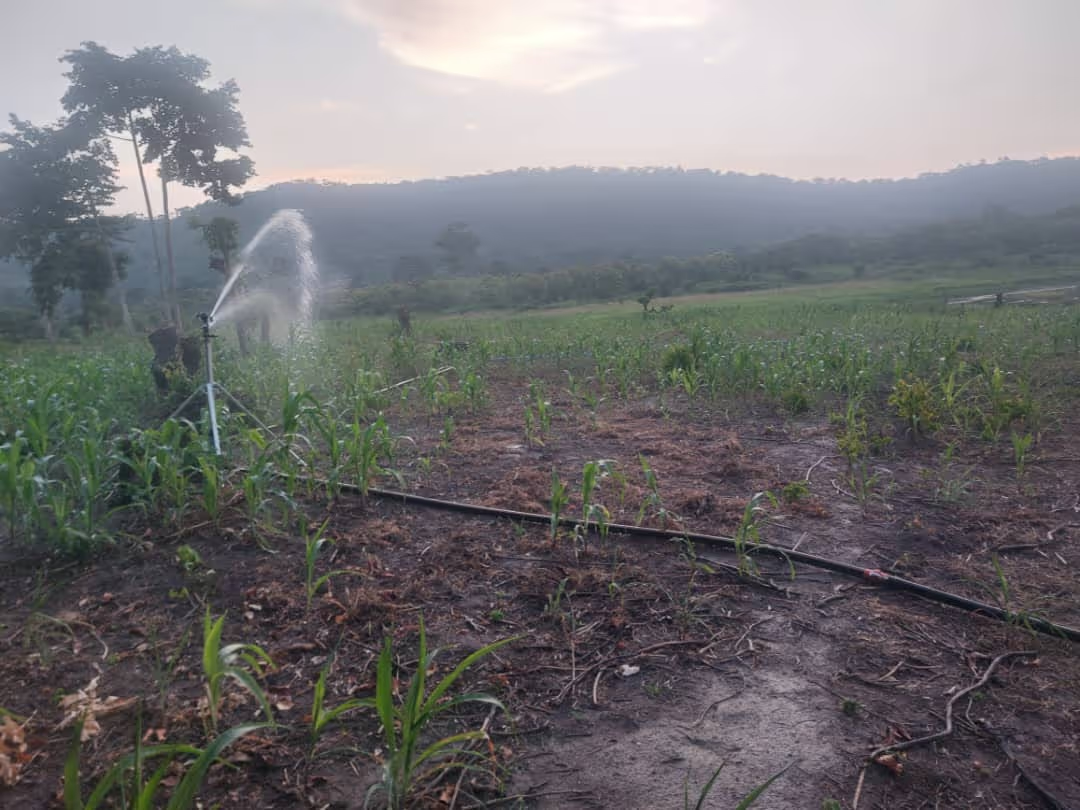The challenge
Communities living along the Volta Lake face a unique set of challenges made worse by climate change: erratic rainfall, seasonal food shortages, high rates of malaria, and limited access to healthcare. The impact is especially severe on women and children, who often bear the burden of hunger, disease, and economic instability.
The Intervention & What We Achieved
To address these interconnected threats, the Women and Children Network Development Foundation (WCNDF) launched a transformative, climate-resilient initiative from January to August 2024. Reaching over 5,000 individuals — 80% of whom were women — the project combined sustainable agriculture, health protection, and community training into one integrated effort.
A sprinkler irrigation system was installed across 27 acres in nine lakeside communities, enabling farmers to grow maize, okra, and groundnuts consistently, even during the lean season between March and July when rainfall is scarce. This ensured not only a steady supply of nutritious food but also a critical income stream at a time when many families typically face food insecurity.
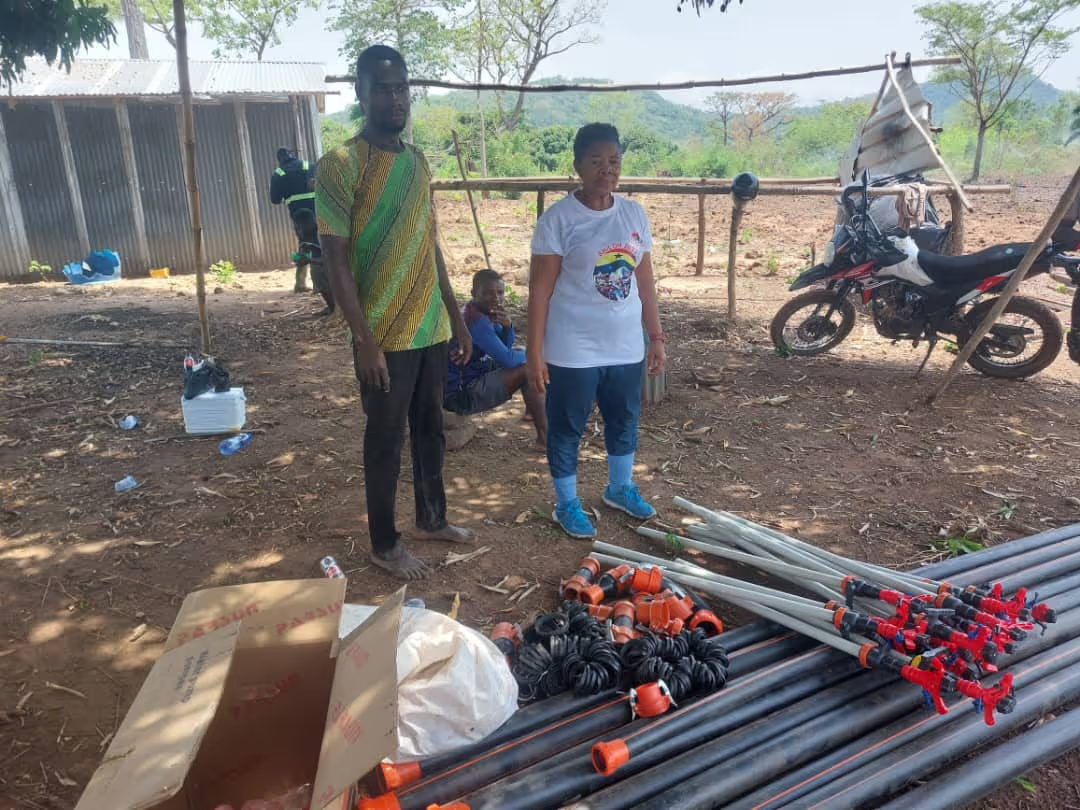
On the health front, 200 mosquito nets were distributed, helping to reduce mosquito bites and control the spread of malaria. In addition, 4,000 community members were enrolled in national health insurance, significantly expanding access to medical care. The project also delivered vital education on maternal health, nutrition, and climate-sensitive disease prevention.
To strengthen long-term resilience, beneficiaries were trained in good agricultural practices, non-chemical post-harvest management, and collective leadership through group dynamics and governance. These skills empowered community members not just to sustain the gains made, but to continue adapting in the face of future climate disruptions.
